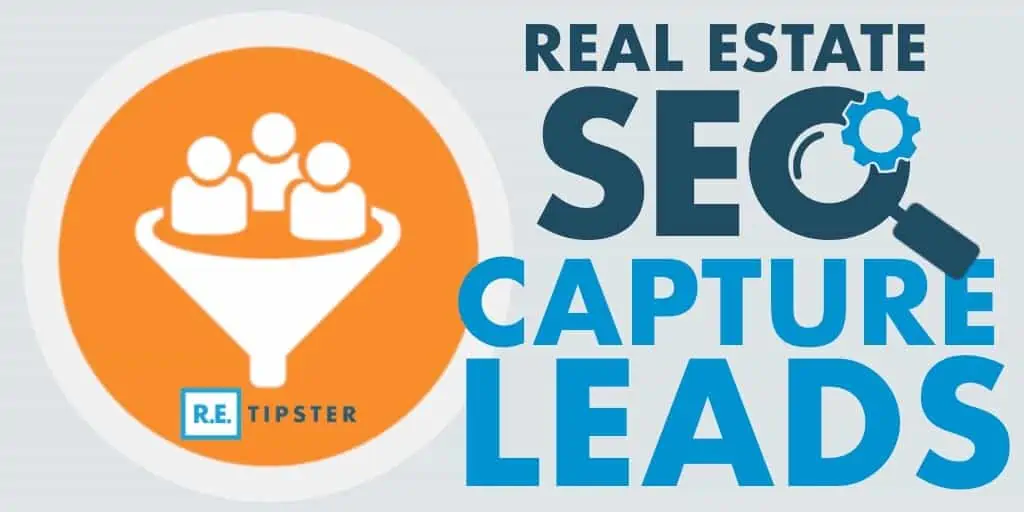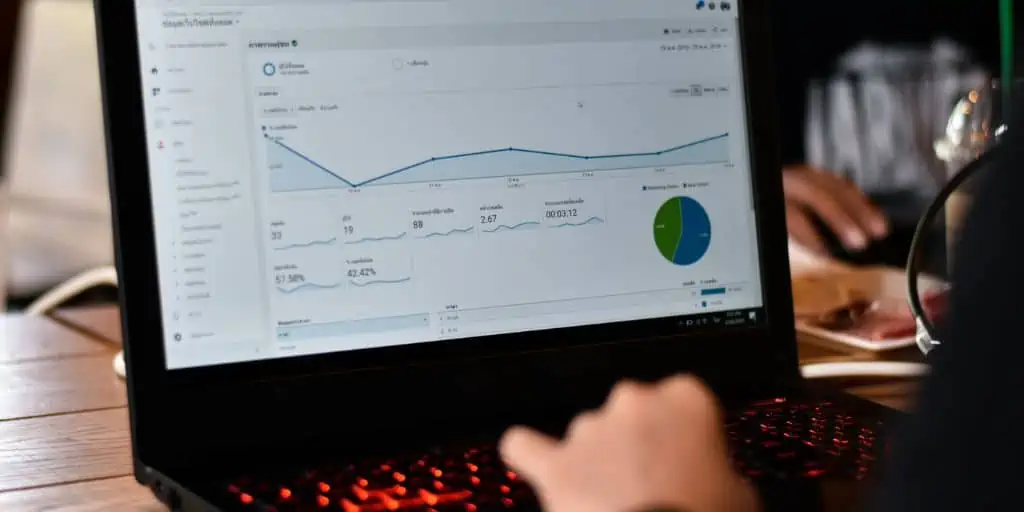
“Go pull a list of vacant houses and absentee owners and send them all postcards!”
You’ve probably heard that at a real estate investing seminar more than once. Cold calling and text message blasts, along with direct mail, have become popular in recent years.
These marketing strategies generate motivated seller leads, and many real estate investors rely on these tactics to run their businesses.
However, when a market is saturated with real estate investors, it is difficult to rise above the noise of everyone else hunting for deals. Many investors may even wonder if they’ll ever find another property to buy.
What if instead of chasing down homeowners in hopes that they will want to sell you their house, they came to YOU when they were ready? That would change the game, wouldn’t it?
This is exactly what happens to investors who use search engine optimization.
What Is SEO?
Search engine optimization or SEO involves building and optimizing a website to rank at the top of Google for certain keywords your prospective clients and customers are searching for.
For example, an SEO-optimized website will rank on Google search results for terms that motivated sellers in your area are searching for, such as “sell my house [your city]” or “we buy houses [your city].”
While it may sound easy, it’s easier said than done.
Ranking your buying website on Google is no simple task, and traffic will not appear just because you built it. This isn’t Field of Dreams.
Most investor websites are made of canned content and end up sitting on the twelfth page of Google because they do nothing to improve their rankings. Most of these website owners don’t even know where to start.
By the time you’re done with this series, you won’t have that excuse. Get ready for a crash course on everything it will take to get your website to the first page of Google!
Why SEO Matters to You
As a real estate investor, your goal is to get in front of motivated sellers when they start searching for buyers on the internet.
Large house-buying companies use SEO to maintain a consistent pipeline of leads. And the crazy part is, you can do it too!
The great thing about leads that come from SEO is that they are typically much more motivated than leads from other sources. If you’ve ever done direct mail or cold calling, you know that many homeowners who respond are not motivated at all and are just seeing how much they can get.
RELATED: Understanding the Motivated Seller
SEO completely changes the dynamic of the relationship. Instead of you seeking them out, they will actively come to you!
By the time a homeowner is motivated enough to type “sell my house fast [your city]” on Google, AND they click on your website AND fill out a form, there’s a good chance they really need to sell their house soon.
The Two Pillars of SEO
Ultimately, SEO boils down to two categories: on-page SEO and off-page SEO.
On-page SEO consists of writing, designing, and optimizing content that goes into your website.
Off-page SEO involves getting other sites to link to yours, which is a huge ranking signal for Google.
But it’s not enough to simply focus on one or the other. Both pillars need to be constructed and reinforced, and we’re going to cover both of these pillars here.
On-Page SEO: Creating Content That Converts
Getting other high-authority websites to link back to your website can be a big task, but it can be done.
Even when you’ve gotten enough backlinks to push your website higher in Google’s search results, you still need some great content on your website. If you don’t, all of these new visitors will bounce and probably go with one of your competitors who does have their website dialed in better.
If you are starting from scratch, it is best to build a solid foundation by designing content that converts. Simply put, your website should contain high-quality, authoritative content that brings value to your audience by answering their questions and providing information.
On-page SEO is concerned with crafting content that resonates with and builds credibility with your audience, whether written copy or other media.
You can do this in a few ways.
1. Match Search Intent
Google is adamant about giving users results that meet their search intent. Miss the mark with your content, and you can forget ranking, let alone being the top result.
Your goal when designing your website should be to end the search journey for your visitors.
If they frequently hit the back button within seconds of landing on your site and go to another website on the results page, this will send a message to Google that people aren’t getting their questions answered by your website, and you will soon see a drop in rankings.
However, if your website answers people’s questions and your page is the last one they visit (especially if they fill out your form and request an offer from you), you will likely jump ahead of your competitors in the search rankings.
To meet the search intent of your traffic, you must think like a Google user: What are they looking for? If you guarantee that they are in the right place to get what they want as soon as your page loads, you have a good chance of converting them into a lead.
2. Make It Worth Your Visitors’ Time
Another metric that Google looks at when choosing the top-ranking websites is user experience, also known as UX. You want people to spend several minutes on your site, reading your content, and bouncing between your pages.
But how do you ensure people stay on your page?
Beyond matching search intent, you need to write in a way that keeps them engaged. Think about how a great movie or story is told. They give you a little bit at a time but always leave you wanting more. That way, you’re watching the next episode before thinking about it. Storytelling is an art that must be mastered when writing content.
Also, no one likes enormous blocks of text. People in this day and age are so used to scrolling through social media feeds that they’ll rarely take the time to read multiple paragraphs knowingly. By adding images and other media, you can keep them engaged longer than they would otherwise. And the longer they stay on your site, the more credibility you will build with them.
3. Put Yourself in Their Shoes
If you’ve been investing in real estate for any length of time, you know that working with a truly motivated seller makes all the difference in the world. It’s hard to get a great deal if the seller isn’t motivated.
Sometimes people get into stressful situations, particularly about their house—it might need major repairs, perhaps it’s in foreclosure, and the like. Either way, they have a big problem, and they need to sell their home, but they’re highly anxious about the entire process.
This is an excellent opportunity for an investor, but it needs to be handled delicately. To build credibility with them, you need to put yourself in their shoes and try to imagine the thoughts running through their mind and the questions they have.
After this exercise, you can begin writing content that builds rapport with your traffic. However, if you do this successfully, motivated sellers will feel differently about your site and want to work with you.
Off-Page SEO: Building Your Website’s Authority with Backlinks
If you follow the advice given so far, you will have content that can convert traffic into leads.
However, that won’t matter if no one ever sees your site.
Just building a great website isn’t enough. There are so many sites out there (about 1.1 billion as of this writing), and Google doesn’t care that you have a pretty design.
So how do you get Google’s attention?
The short answer: backlinks.
A backlink is when another website links to yours within their content. A site’s number of backlinks plays a massive role in how it ranks on Google. Each backlink essentially serves as a vote of approval from other websites, which means they refer to you for information. Therefore, the more links you have, the more authority your site possesses.
The question is, how do you get websites to link to you?
How to Get Backlinks
The number one rule when backlinking is that there must always be a mutual exchange of value for a website to link to you.
And no, this doesn’t always mean money.
The value that you receive when someone links to you is obvious. Your website grows in authority. But what’s in it for them? You will have much better success if you consider this question before reaching out to site owners and asking them for links.
SEO specialists use countless link-building strategies, but here are two that will likely give you the best success rate.
Respona
Respona is a service that connects journalists who are writing articles with experts who can answer their questions. This works well if you have been in the real estate industry for a while because many questions are related to real estate and home improvement.
Journalists who decide to use your input in their article typically give you a backlink. And some of these journalists work for extremely authoritative sites such as Forbes, Apartment Therapy, and Better Homes and Gardens. Links from these websites are home runs and will launch you to the top of the rankings.
Guest Blogging
When you’re just starting, your site’s authority and traffic are essentially zero. And that stinks because you probably have tons of great content ideas.
Instead of writing them on your blog and hoping that people will find them, you can use some of them to build your site’s authority via guest blogging.
Here’s how it works:
Reach out to websites in the real estate industry and ask to write a guest blog for them. You can embed a couple of links to your site within that article. And voila! Your authority starts going up!
Pro-tip on securing guest post opportunities: Remember the value exchange we discussed. Without this, most legitimate sites will not be willing to work with you. Check out this article for more information on providing value to guest post opportunities.
The Importance of a Blog
Although your homepage and supporting pages will be the most important ones on your website, you cannot overlook the importance of consistently publishing content on your blog.
Not only will writing informative content on your blog allow you to generate more traffic, but it will also supercharge your link-building efforts.
Using Your Blog to Acquire More Links
One of the most common ways that websites acquire backlinks is when another site writes an article that briefly mentions a topic but doesn’t have the time to delve into it. To give their readers more information, they’ll often link to another site’s article that completely covers that topic.
Now let’s be honest. Most bloggers have no reason to link to a real estate investor’s homepage that screams, “We buy houses for cash!”
That’s where your blog comes in. If you have articles that give valuable information on real estate topics, they can serve as link magnets.
You might wonder how getting backlinks to random articles on your blog will help you find more motivated sellers. This is where the “middleman method” comes into play. If you add links on your blog articles that point to the pages you want to rank, such as your homepage, some of the power from the external links pointing to the blog posts will pass through those internal links and power up your other pages.
Write Articles to Shortcut Your Way to the Top
If you design your homepage to resonate with motivated sellers and build high-quality backlinks, it will likely begin ranking for many search terms.
However, ranking for every term a motivated seller might search for can be challenging. For example, you might rank for “sell my house [your city]” but not for “cash for my house [your city].”
The Google algorithm is smart enough to figure out over time that your homepage should also rank for other terms, but this can take quite a while.
But there’s a shortcut. Instead of waiting for Google to rank your homepage for other search terms, you can write targeted articles.
If you notice many people searching for “cash for my house [your city],” you can write a blog post with that term in the title and talk about it throughout the content. If you build backlinks to that article, it will likely rank for that term much faster than your homepage.
Cover More Territory With City Pages
The best approach when creating a website to generate motivated seller leads is to target your primary city with your homepage. For most real estate investors, this will be a large metro city.
But you don’t want to miss out on deals in the surrounding cities! You can capture these deals by creating city pages.
A city page is essentially a duplicate of your homepage that targets a neighboring city. However, it cannot be an exact duplicate. If Google sees a lot of similarities between the content on two pages, it will not index one of them. This means that it won’t show up in any search results.
For this reason, each city page’s content needs to be fairly unique. This can be a lot of work, but it will multiply your SEO efforts significantly by pulling in leads from every city in your area.
City Page Link Structure
Remember how internal links pass the backlink power from one of your pages to another?
If you try to spread that across dozens of city page links on your homepage, that power gets spread so thin that it doesn’t do much.
Instead, add a few links on your homepage to city pages that you really want to rank. Then, you can link to additional city pages from these “first-tier” city pages. If you have dozens of city pages, some of them might be a few links deep from your homepage.
If there is a particular city page that you want to boost in the rankings, you can build backlinks directly to that page.
How Long Does SEO Take for Real Estate Investors?
There’s no way around it—it takes time.
Building a site from scratch and getting it to rank on Google can take quite a while. If you work diligently, you can begin seeing organic traffic within six months to a year.
The great thing about SEO is that once you start ranking, the leads are free. And if you do it right, you will stay there for a while even if you stop working on it. However, you should keep your foot on the gas and continue to bolster your site and make it even stronger!
Speed Up the Process With Google Ads
You’re probably thinking, “Forget this; I’ll just stick to direct mail! I can’t wait a year to get leads!” And we admit that a year is a long time waiting to get traffic.
Instead of waiting until your site ranks naturally, you can speed up the process by running Google Ads.
Google allows websites to run ads and appear at the top of the search results (typically the top four spots) for specific keywords. You’ve probably seen these results when you’ve run Google searches.
These ads work, and the nice part is that you can start running them as soon as the design of your site is in a good place.
Instead of trying to run these ads on your own, we highly recommend working with someone that has experience with them, ideally someone who works with real estate investors.
If you get to a point where your website is showing up in the ad space and the organic search results simultaneously, you will start pulling in a ton of deals!
Scale Your Real Estate Business With SEO
SEO is one of the best ways to generate consistent leads for your real estate investing business.
But make no mistake—it takes a lot of work. Then again, every successful real estate marketing strategy takes work.
If you’re satisfied with the results you’re currently getting from your marketing, that’s fine. But if you’re frustrated with inconsistent results and wondering where your next deal will come from, you should seriously consider SEO.
In reality, SEO for real estate investors is a fairly new arena. Sure, there are tons of investors out there with websites. But very few have put in the time and effort to implement the strategies we’ve laid out here to generate results.
As markets become increasingly saturated with investors, it's only going to get harder to source deals using traditional marketing methods. But don’t wait for that to happen. Get ahead of the curve and implement SEO—you’ll thank us later.
In Part 2, I'll show you how to optimize your website content to fine-tune your SEO efforts!




















